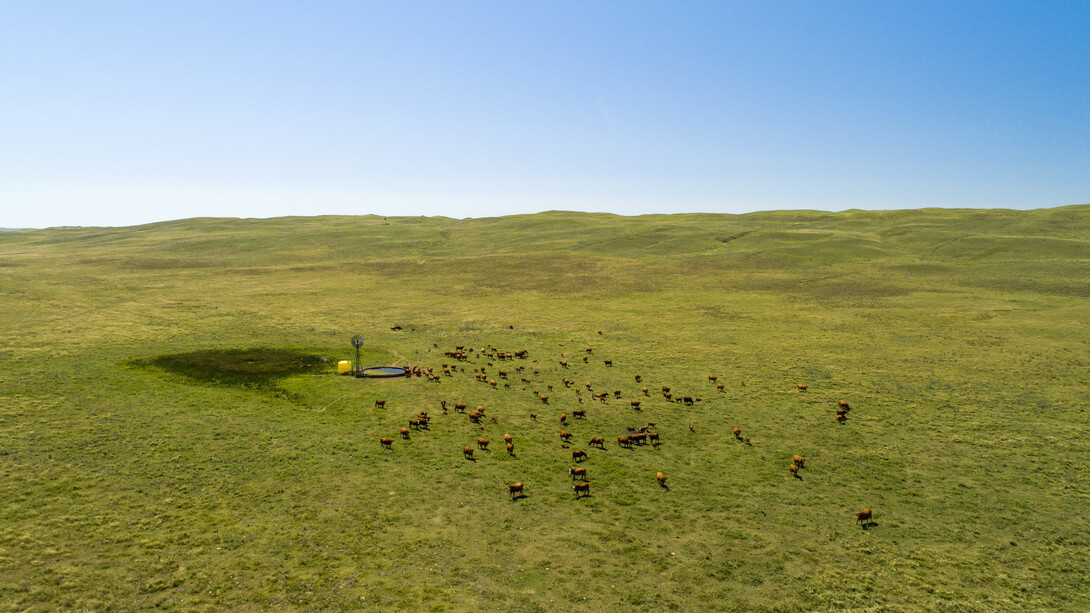
By Maria Tibbetts | UNL Beef
The University of Nebraska–Lincoln aims to better gauge the environmental impact of the ranching industry with a new $5 million grant.
“We’re asking beef producers to make changes without the science to know it is beneficial, and not being able to accurately measure whether their change worked,” said Galen Erickson, professor of ruminant nutrition and leader of the Beef Innovation hub at Nebraska.
Erickson’s team recently received a five-year, $5 million Grand Challenges grant from the university to address that issue. The project will establish scientific processes and develop technology to accurately measure greenhouse gas emissions from grazing cattle.
Researchers will study cattle in grazing systems at three of the university’s research facilities — the Eastern Nebraska Research, Extension and Education Center near Mead; Barta Brothers Ranch, southeast of Ainsworth; and Gudmundsen Sandhills Laboratory, near Whitman.
The Grand Challenges initiative is funded by the Office of the Chancellor and the Office of Research and Innovation. The grants are open only to Husker faculty and must address one of seven thematic areas. This grant, called Advancing Development of Assessments, Practices and Tools (ADAPT) to Produce Climate Smart Beef in Grazing Systems, addresses three of those priorities — climate resilience, sustainable food and water security, and science and technology literacy for society.
“The goal of the project is to develop tools that can be easily and economically employed to help predict the benefits and any situations where we can improve relative to greenhouse gas in grazing systems,” Erickson said. “We want to provide tools that allow producers to say this is or isn’t a practice that will have a positive effect on the environment.”
The ADAPT team includes researchers in grazing systems; human dimensions; remote sensing, including drone technology; data modeling and management; greenhouse gas flux; ecosystem resilience; communications; plant ecophysiology; soil science; and agronomy.
SNR researchers Gwendŵr Meredith, Andy Suyker, Ran Wang and Makki Khorchani are part of the Advancing Development of Assessments, Practices and Tools (ADAPT) project.
Read the full article at https://news.unl.edu/article/unl-commits-5-million-to-better-measure-environmental-impact-of-cattle.